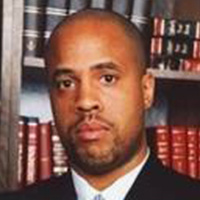Black Canyon City Misdemeanor Lawyer, Arizona
Sponsored Law Firm
-
 x
x

Click For More Info:
-
Kenneth S. Countryman, P.C.
1130 North 2nd Street P.O. BOX 11077 Phoenix, AZ 85004» view mapCriminal Defense Law A Law Firm You Can Trust
Let Kenneth S. Countryman, P.C. handle your criminal defense legal matters.
800-978-0861
Bradlee Rideout
✓ VERIFIEDDivorce & Family Law, Felony, Misdemeanor, Bankruptcy & Debt, Family Law
Attorney Brad Rideout is the managing attorney of Rideout Law Group. Brad got his undergraduate degree from Arizona State University, then got his law... (more)
Scott Allan Maasen
Criminal, DUI-DWI, Felony, Misdemeanor
Status: In Good Standing Licensed: 28 Years
FREE CONSULTATION
CONTACTFREE CONSULTATION
CONTACT Kenneth Countryman Phoenix, AZ
Kenneth Countryman Phoenix, AZ Practice AreasExpertise
Practice AreasExpertise

